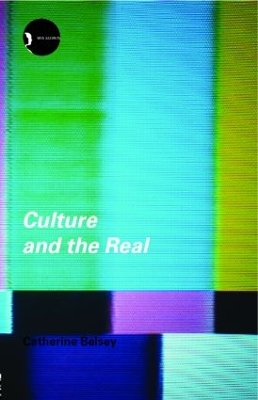New Accents
2 total works
What makes us the people we are? Culture evidently plays a part, but how large a part? Is culture alone the source of our identities? Some have argued that human nature is the foundation of culture, others that culture is the foundation of human identity. Catherine Belsey calls for a more nuanced, relational account of what it is to be human, and in doing so puts forward a significant new theory of culture.
Culture and the Real explains with Professor Belsey's characteristic lucidity the views of recent theorists, including Jean-Francois Lyotard, Judith Butler and Slavoj Zizek, as well as their debt to the earlier work of Kant and Hegel, in order to take issue with their accounts of what it is to be human. To explore the human, she demonstrates, is to acknowledge the relationship between culture and what we don't know: not the familiar world picture presented to us by culture as 'reality', but the unsayable, or the strange region that lies beyond culture, which Lacan has called 'the real'. Culture, she argues, registers a sense of its own limits in ways more subtle than the theorists allow.
This volume builds on the insights of Belsey's influential Critical Practice to provide not only an accessible introduction to contemporary theories of what it is to be human, but a major new contribution to current debates about culture. Taking examples from film and art, fiction and poetry, Culture and the Real is essential reading for those studying or working in cultural criticism, within the fields of English, Cultural Studies, Film Studies and Art History.
With a new chapter, updated guidance on further reading and revisions throughout, this second edition of Critical Practice is the ideal guide to the present and future of literary studies.

